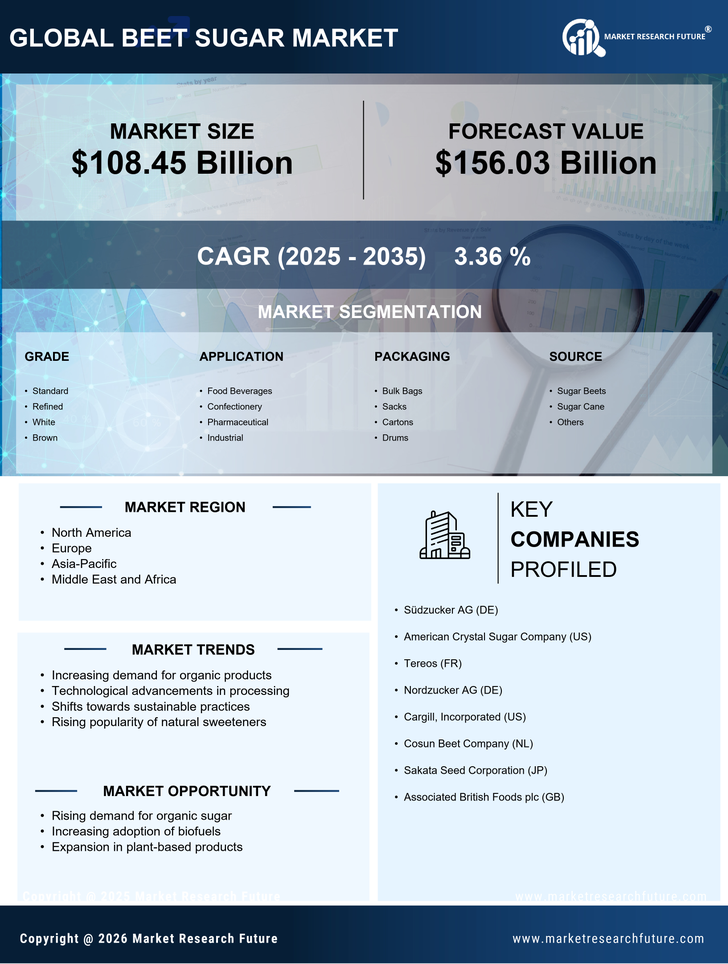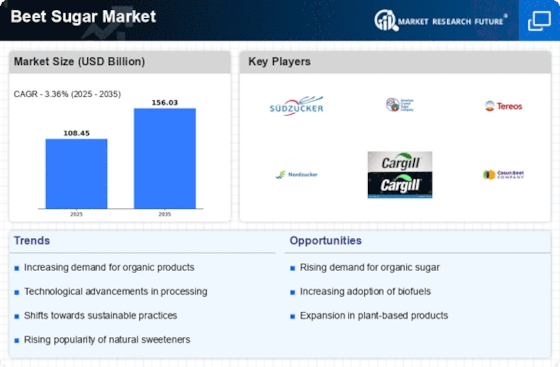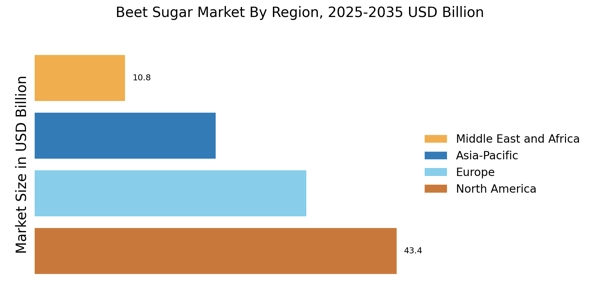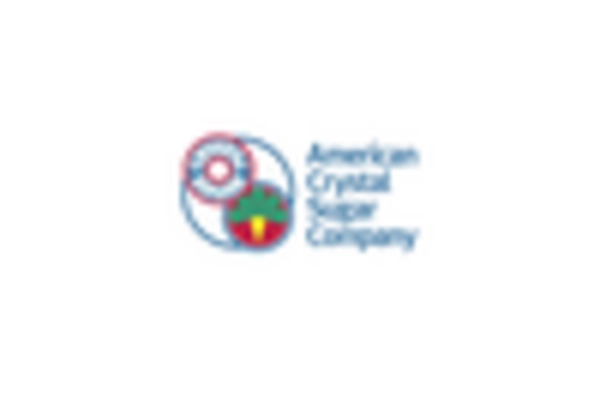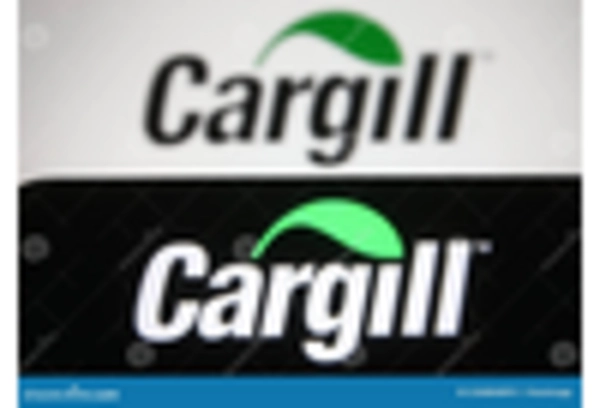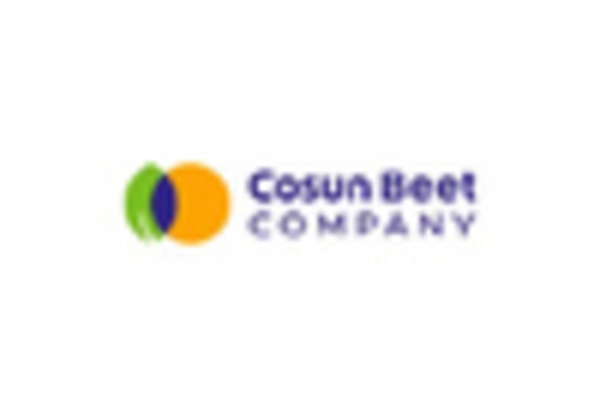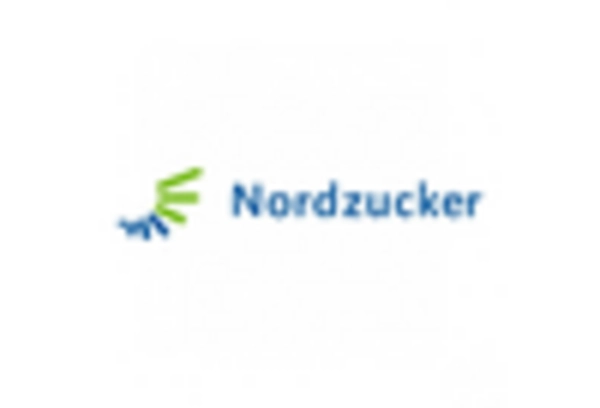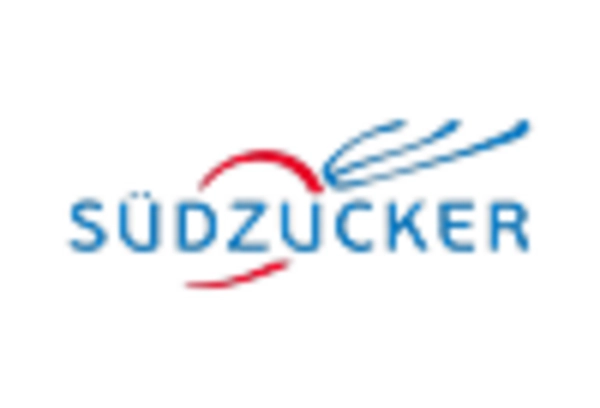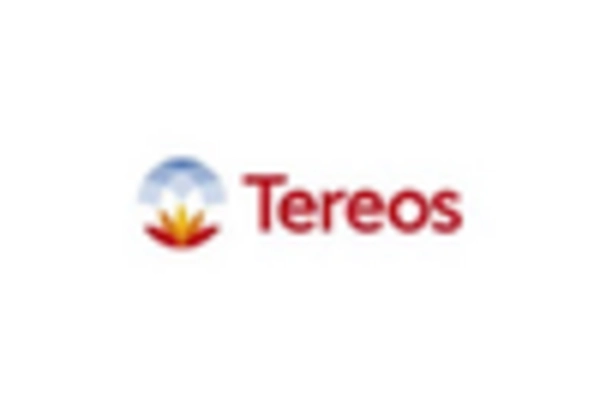Expansion of Export Markets
The beet sugar Market is experiencing a notable expansion in export markets, driven by increasing global demand for sugar products. Countries with established beet sugar production capabilities are exploring new international markets to enhance their export potential. This trend is particularly evident in regions where domestic production is unable to meet local demand, creating opportunities for beet sugar exporters. Market data indicates that beet sugar exports have seen a steady increase, with projections suggesting a growth rate of approximately 3% annually over the next few years. This expansion into new markets is likely to provide a significant boost to the Beet Sugar Market, as producers seek to capitalize on the growing global appetite for sugar.
Rising Demand for Natural Sweeteners
The Beet Sugar Market is experiencing a notable increase in demand for natural sweeteners, driven by a shift in consumer preferences towards healthier alternatives. As consumers become more health-conscious, they are increasingly seeking products that are perceived as natural and less processed. This trend is reflected in the growing popularity of beet sugar, which is often viewed as a more wholesome option compared to refined sugars. Market data indicates that the demand for natural sweeteners, including beet sugar, is projected to grow at a compound annual growth rate of approximately 5% over the next five years. This rising demand is likely to encourage manufacturers to expand their offerings in the Beet Sugar Market, thereby enhancing market growth and innovation.
Increased Use in Food and Beverage Industry
The Beet Sugar Market is significantly influenced by its extensive application in the food and beverage sector. Beet sugar is widely utilized as a sweetening agent in various products, including soft drinks, baked goods, and confectionery items. The food and beverage industry is projected to account for a substantial share of the beet sugar market, with estimates suggesting that it could represent over 60% of total consumption. This robust demand is likely to be fueled by the ongoing trend of product reformulation, where manufacturers seek to improve the taste and quality of their offerings. As a result, the Beet Sugar Market is expected to witness sustained growth, driven by the increasing incorporation of beet sugar in diverse food and beverage applications.
Growing Awareness of Sustainable Agriculture
The Beet Sugar Market is benefiting from a heightened awareness of sustainable agricultural practices among consumers and producers alike. As environmental concerns continue to rise, there is a growing emphasis on sourcing ingredients from sustainable and eco-friendly farming methods. Beet sugar, often produced with lower environmental impact compared to cane sugar, is gaining traction among environmentally conscious consumers. This shift towards sustainability is likely to drive demand for beet sugar, as consumers increasingly prefer products that align with their values. Market data suggests that the sustainable sugar segment, including beet sugar, could see a growth rate of around 4% annually, reflecting the increasing importance of sustainability in the Beet Sugar Market.
Technological Advancements in Sugar Production
The Beet Sugar Market is poised for growth due to ongoing technological advancements in sugar production processes. Innovations in extraction and refining techniques are enhancing the efficiency and yield of beet sugar production. These advancements not only improve the quality of the final product but also reduce production costs, making beet sugar more competitive in the market. For instance, the introduction of precision agriculture technologies allows for better crop management and higher yields, which can significantly impact the overall supply of beet sugar. As these technologies continue to evolve, they are likely to play a crucial role in shaping the future of the Beet Sugar Market, potentially leading to increased market share and profitability for producers.
